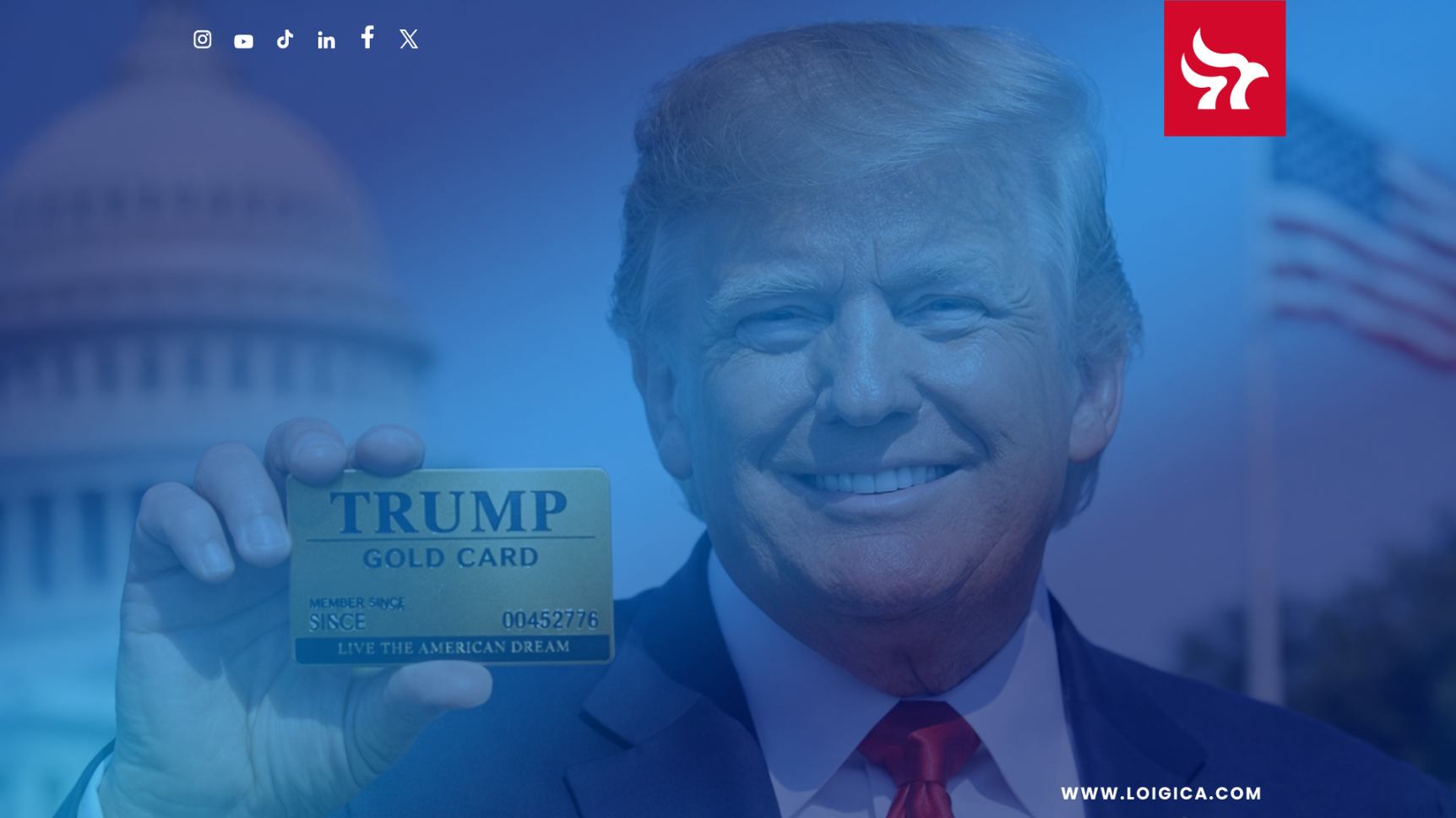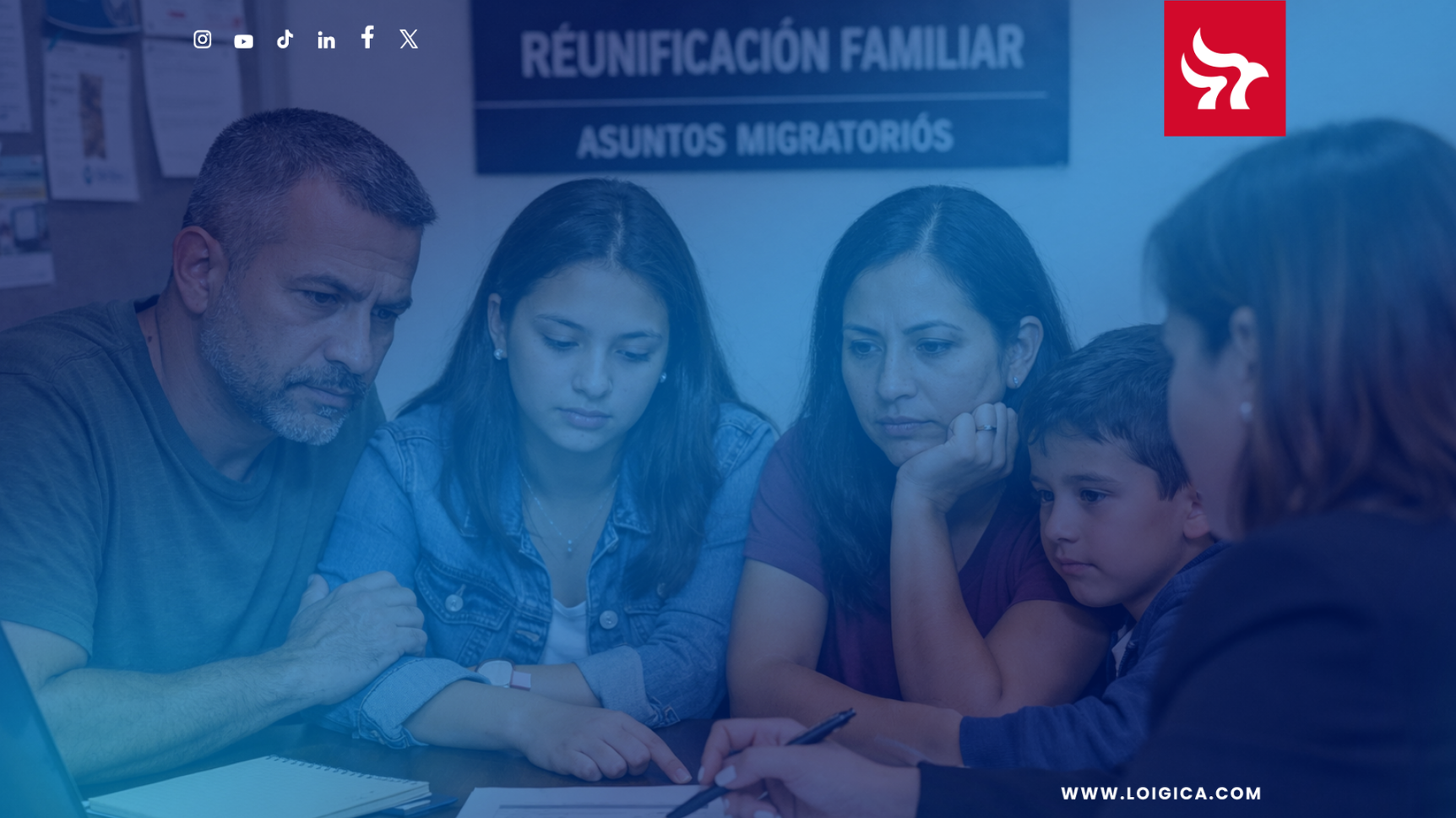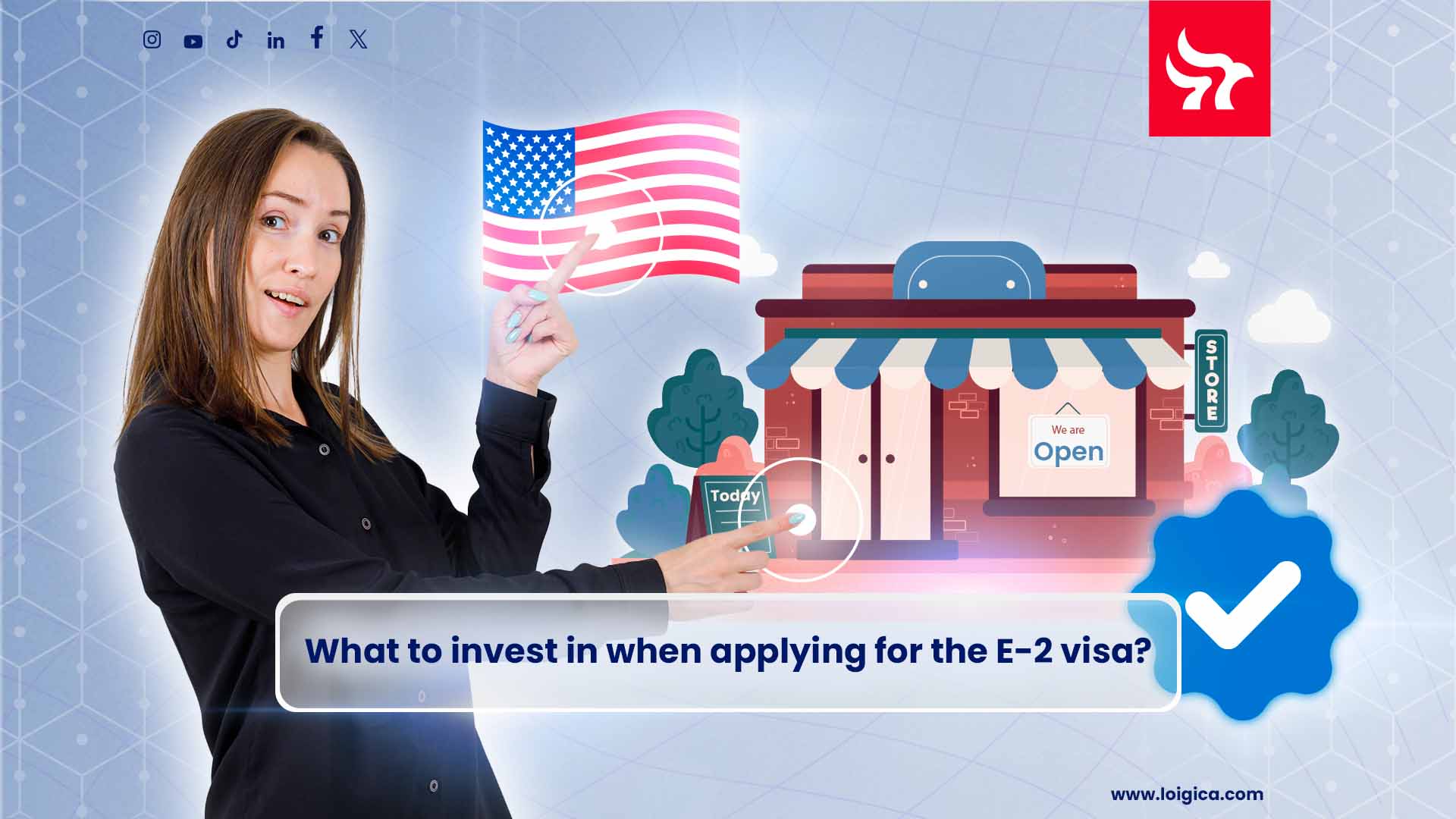Today, at LOIGICA, we wanted to dive into a key concept that’s fundamental not only to U.S. immigration law but also to the broader field of international business—the bona fide business. If you’re planning to engage in business across borders, you’ll need to understand what it means for a business to be considered legitimate, or “bona fide,” in the eyes of U.S. immigration authorities.
So why is this important? Well, let’s say an entrepreneur from abroad wants to establish a company in the U. S. and apply for an E-2 visa or an L-1 visa to get it started. The immigration authorities will scrutinize the business to determine whether it’s real and legitimate. They’ll look that it does not just have a website or a few transactions—they’ll look at the financials, the business plan, the investment, and even the operational setup.
In other words, the American immigration authorities, when evaluating your visa application, will need to see that this isn’t just a shell or a “hobby business,” but something with real economic activity.
What Exactly Is A Bona Fide Business?
A bona fide business is essentially one that is real, active, and conducted for the purpose of generating profit through the provision of goods or services. It’s not a business in name only, nor is it a passive investment, like simply holding stocks or property. For immigration purposes, U.S. authorities require proof that the business has actual operations and is actively working toward its goals.
What does a business need to be considered bona fide?
To be considered bona fide, the business must meet several specific criteria:
- Legitimate Business Activity. The business should be engaged in some form of legitimate trade, commerce, or service. It needs to offer real products or services, and the transactions it carries out should be aimed at generating income.
- Sufficient Investment. If we’re talking about visa categories like the E-2 for investors, U.S. authorities will examine whether the business has received a substantial investment. This isn’t just about putting in a small sum of money. The investment must be significant enough to ensure the success of the business, considering the type of industry and its financial needs.
- Operating and Active. The business cannot just exist on paper. It needs to have a physical presence, such as an office or storefront, employees who carry out day-to-day operations, and proof of ongoing business activities like contracts, clients, or sales. Immigration authorities will look for evidence that the business is truly active and functioning.
- Capacity for Growth and Sustainability. U.S. immigration law often emphasizes whether the business has the potential for long-term success and profitability. It’s not enough for the business to simply survive for a short period of time—it must have a realistic chance of growing, creating jobs, and contributing to the economy over time.
Immigration officers will closely evaluate all aspects of the business to ensure it meets these standards, which is why having thorough documentation, financials, and a sound business plan is critical for anyone seeking a business-related visa. At our offices, we can you help you out with them!
In the meantime, let me explain two of the most important criteria.
What Are Legitimate Business Activities?
When we talk about “legitimate business activity” in the context of U.S. immigration law, we mean that the business must be engaged in genuine, legal commercial activities that contribute to the American economy. It cannot be a business in name only or a passive holding entity, like an investment in stocks or undeveloped land. Instead, it must be a real, functioning enterprise that provides goods or services to customers.
What could constitute a legitimate business activity?
To break it down, let’s look at the key aspects of what constitutes legitimate business activity:
- Engagement in Commerce. The business should be involved in some form of trade, commercial exchange, or provision of services. This means it has to produce, sell, or offer something of value—whether it’s physical products like clothing or software, or services like consulting, construction, or education. There should be clear, verifiable business transactions taking place on a regular basis..
- Lawful Operations. The business must comply with all federal, state, and local laws and regulations. This includes having the appropriate licenses, following labor laws, paying taxes, and adhering to health and safety standards. Engaging in illegal activities or skirting legal requirements would disqualify the business from being considered legitimate. Immigration authorities will check to ensure the business is operating within legal bounds..
- Active and Purposeful. The business cannot just exist on paper. It needs to have a physical presence, such as an office or storefront, employees who carry out day-to-day operations, and proof of ongoing business activities like contracts, clients, or sales. Immigration authorities will look for evidence that the business is truly active and functioning.
- Market Presence. A legitimate business must have a presence in its industry or market. This could be through a physical location like an office or retail store, or it could be an online business with a digital presence. In either case, the business should be visible and accessible to potential clients or customers. Having a website, marketing materials, or even customer reviews can help demonstrate this.
- Financial Records. The business must show that it is financially active, meaning it has revenue, expenses, and is either currently profitable or on a clear path toward profitability. Immigration authorities will often ask for financial documentation such as tax returns, profit and loss statements, and balance sheets. These records help prove that the business is engaged in legitimate, ongoing economic activity.
What Is Considered Sufficient Investment?
This is the questions we’ve heard the most out of all of our clients. Thought it make some of them worry, it’s actually the reason the E-2 visa is such an important opportunity for entrepreneurs and new business owners all around the world.
When U.S. immigration authorities evaluate whether a business has a sufficient investment, they are looking for evidence that the business has been capitalized with adequate money to operate successfully and meet its objectives. The investment must be significant relative to the total cost of either starting or buying the business, and it must reflect the investor’s financial commitment to the enterprise.
In other words, an investment that’s sufficient is not a round number. It is as much or as little money you can prove your business will need. It’s just enough money.
Let me break it down a little further. Here’s a detailed explanation of what “sufficient investment” means:
Substantial in relation to the business
The investment must be proportionate to the total cost of the business.
U.S. immigration authorities do not set a specific minimum dollar amount across the board; instead, they evaluate whether the amount invested is sufficient for the type of business in question. For example, a small consulting firm may require a lower investment than a manufacturing plant or a restaurant due to different operational and capital costs.
There are mostly two types of business based on their operational costs:
- Low-Cost Businesses. In businesses with lower startup costs, a smaller investment may still be considered sufficient if it covers most or all of the necessary operational expenses.
- High-Cost Businesses. In industries with higher startup costs, such as manufacturing or real estate, the investment must be higher to be considered substantial. Authorities will expect the investment to cover a significant portion of the business’s needs, including equipment, inventory, infrastructure, and staffing.
Committed funds
Immigration authorities require that the funds be fully committed to the business, not just pledged or held in an escrow account.
This means that the investor must have already made the investment or be in the process of deploying the funds into the business operations. Authorities want to see that the investor is taking a real financial risk, which includes using personal funds or resources to get the business off the ground.
Here are two concept that might be important to consider:
- Risk of Loss. The investment must be at risk, meaning that it cannot be a loan or funds that the investor could easily reclaim. The idea is that the investor must have “skin in the game,” demonstrating their commitment to making the business succeed.
- Non-Marginal Investment. The investment cannot be so small that the business would only provide a minimal return or income just for the investor’s family. The investment must be substantial enough to support a real, operating business that will generate jobs or contribute to the local economy.
Active business operations
Immigration authorities want to see that the funds are being used to actively operate the business. This involves:
- Purchasing equipment or inventory needed for the business to run.
- Renting or buying premises where the business will operate.
- Hiring employees or contractors to carry out operations.
- Covering essential startup costs like licensing, marketing, legal fees, and utilities.
Merely setting aside money for future use without putting it to work in the business is not sufficient. The investment must be actively deployed to demonstrate that the business is not just a passive entity or shell.
Traceable and lawfully obtained funds
The money used for the investment must come from a legal source. Immigration authorities will carefully scrutinize the origin of the funds to ensure that they have been obtained lawfully. This might involve reviewing personal financial statements, tax returns, and documents showing the sale of property or investments, among other sources.
Job creation and economic contribution
For some visa categories, such as the EB-5 visa, the sufficiency of the investment is tied to the requirement that the business must create jobs. In this case, the investment must be large enough to ensure that the business will hire at least ten full-time employees within a certain period.
Even for visas like the E-2, where job creation is not a strict requirement, immigration authorities will still evaluate whether the investment is sufficient to contribute to the local economy through employment or providing goods and services to consumers.
Sufficient for long-term business success
The investment must not only cover initial startup costs but also provide the business with enough capital to sustain itself for a reasonable period. U.S. immigration authorities want to see that the business has a strong chance of long-term success and growth, which means having the financial resources to cover operating expenses and develop further.
Some budgets that might work as indicators of long-term business vision are:
- Operating Budget. The investment should be enough to cover operational costs for the first several months or even years of the business. Authorities will review business plans and financial projections to assess whether the business is financially viable with the investment provided.
- Future Expansion Budget. Having sufficient investment means the business has the potential to grow, hire more employees, or expand into new markets. Immigration authorities want to see that the investment is not just a one-time infusion of capital but a foundation for future success.
A Few Takeaways
As we wrap up our discussion on bona fide businesses and sufficient investment, I want you to take away a few key points.
First, the concept of a bona fide business is foundational to U.S. immigration law—it’s not just about having a business on paper, but about demonstrating real, lawful, and active economic activity. Immigration authorities are looking for businesses that are not only legitimate but also capable of contributing to the economy in a meaningful way.
Second, sufficient investment is critical because it shows a commitment to the business’s success. It’s about more than just meeting a financial threshold; it’s about demonstrating that the business has the resources to operate, grow, and create value, whether that’s through jobs, services, or goods.
Immigration laws and business regulations often intersect, and having a firm grasp of these principles can make all the difference in successfully navigating those waters. In any case, having a law firm, like LOIGICA, that could help you to be up to date and compliant to everything an immigration authority might need of your business is the best possible step you can take on your journey towards the United States.
Join our newsletter
All about immigration law, visas, news, interestings interviews and more.
Recomendados

Gold Card for high net worth Latin Americans: decisions beyond the first million dollars




